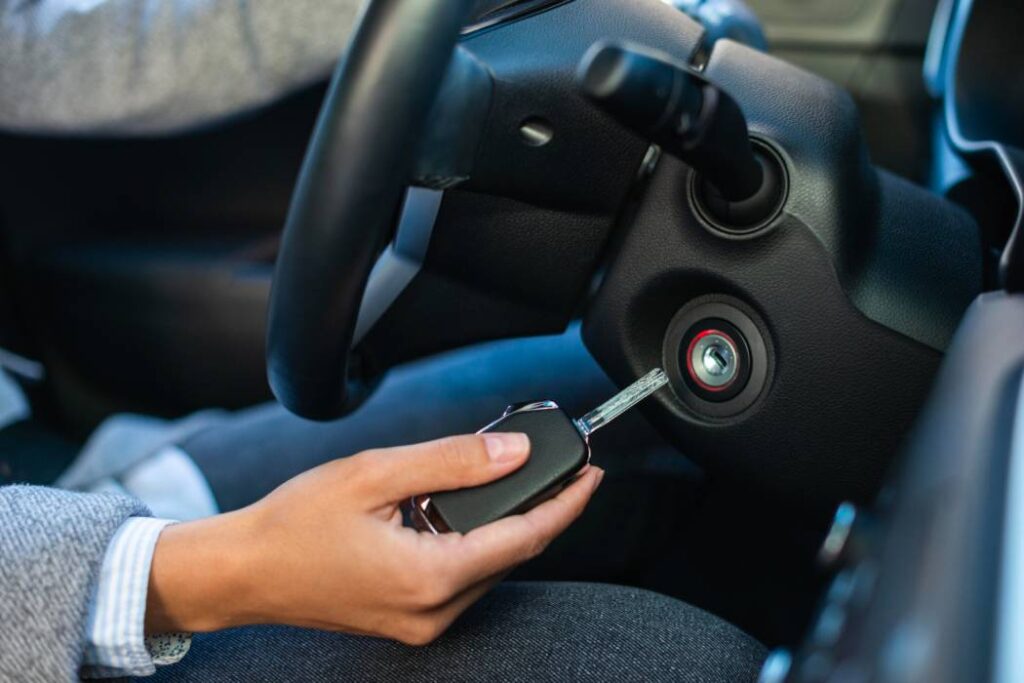After inserting the key into your car’s ignition, you hear a few concerning noises, but the vehicle fails to start. There are several potential causes for difficulty starting your car, but before reaching out for assistance, there are a few checks you can perform yourself. Start by confirming that the steering wheel is unlocked. If it’s the culprit, turning the wheel back and forth will allow you to turn the key further and disengage the lock, enabling the car to start. However, if you’re dealing with a high-performance car like an Audi that won’t start, seeking expert help by taking it for an Audi service in Melbourne is the best course of action. However, as a preventative measure, it’s essential to identify why the car is experiencing starting issues.

Table of Contents
Here are ten possible reasons the car won’t start
Car trouble can be frustrating, especially when you’re in a rush or far from home. One of the most common issues drivers face is difficulty starting their vehicle. If you turn the key in the ignition and nothing happens, there could be several potential reasons for this problem. Here are ten possible causes why your car won’t start:
Dead or bad battery
Batteries are the most common cause of the malfunction of the car. All cars run on gasoline, but all require electrical power. A starter cranks your engine to start, and this starter uses an electrical signal to fire. Your car engine won’t turn over if something is wrong with your battery. Many other symptoms indicate a bad or dead battery, but inspecting if your engine turns over is always an excellent first step in diagnosing the problem. You can deal with a dead battery yourself; jumping a car battery is something anyone with a base level of know-how can accomplish. However, new batteries can be expensive; therefore, it’s best to take good care of your battery.
Bad alternator
The alternator is one of the essential parts of your vehicle’s electrical system, and it is often the first thing to go wrong when starting problems begin. The alternator keeps the car’s battery charged and recharges the battery as you drive. If the alternator is terrible, it may need more power to keep your battery charged. It can also cause other electrical problems, such as an inability to produce a proper spark to ignite the fuel mixture in your engine. Most automotive technicians recommend getting a new alternator if your old one goes out.
Spark plugs
Your spark plugs are among the most critical components in your vehicle; they are the tiny pieces of technology that ignite the air-fuel mixture in your engine’s cylinders. If your car doesn’t start, its spark plugs may be old or dirty. A spark plug that has developed a defect can cause your vehicle to experience a sudden or gradual loss of gas mileage, problems with acceleration, and engine troubles like misfires.
Broken starter motor
The starter motor is the component that makes your car’s engine turn over when you start it. When something goes wrong with the starter motor, your vehicle may not start when you put the key in the ignition, or it might stall out as soon as it starts running. Now you must be thinking about what would cause my car to suddenly not start because of the starter motor. One of the easiest ways to test whether your starter motor needs help is to see if your lights are turned on when you turn your key in the ignition. If they do, but the engine doesn’t start or keep running, there could be a problem with your starter motor.
Broken distributor cap
When your distributor cap breaks, it can cause several problems with your car’s performance and efficiency. Whether you’re planning to buy a new car or just getting repairs done, it’s crucial to understand how this simple piece of equipment works. You might think that spark plugs cause your engine’s spark, but that’s not true. The distributor cap routes power from the ignition coil to the spark plugs. Malfunctioning distributor caps can cause misfires, activate the check engine light, cause strange noises, and prevent cars from starting.
Faulty ignition switch
The ignition switch is a crucial component of your car’s electrical system. Its role is to send power from the battery to the starter motor and power to your car’s electronics systems. When you turn your key, the switch activates these systems, such as lights and radio, ensuring everything works well. A bad ignition switch can prevent your car from starting or cause problems such as dashboard lights flickering or dying altogether. A bad ignition switch should be addressed by a professional mechanic as soon as it’s discovered so that you can avoid further damage caused by faulty wiring and electrical issues.
Bad timing belt
The timing belt is another significant component integral to a functioning engine. The timing belt rotates the engine’s crankshaft and camshaft in unison, causing the pistons to make their way up and down at the appropriate times during combustion. If something goes wrong with your timing belt, you may experience several issues. Replacing your car’s timing belt is one step in the maintenance that should be performed semi-regularly.
Clogged fuel filter
If you’re having trouble getting your car started, the issue could be as simple as a faulty fuel filter. This small but vital component regulates the amount of gas that gets to your engine, sending it through a gauntlet of tests along the way. If it becomes clogged or broken, it could prevent fuel from reaching your engine and thus keep it from starting. Replacing your fuel filter every 30,000 miles is considered best practice by technicians; if yours is nearing that point and your car still doesn’t start, contact a European car mechanic in Melbourne to replace the part if necessary.
Jammed steering lock
If you’ve ever been unable to turn your key in the ignition, your steering lock is likely jammed. The steering lock is activated when someone tries to move the steering wheel while the key is not inserted in the ignition. However, it can accidentally serve as an anti-driver measure by jamming. If your steering lock jams, try to wiggle it back and forth gently and turn it in whichever direction allows some movement. Once the lock is unjammed, you can usually turn the key in the ignition.
Empty fuel tank
While your car failing to start is not something anyone wants to experience, it is a good thing. If you run out of gas, there is no engine problem. The best bet is to get a gas can and top up your tank until it’s complete enough for your car to start again. Knowing the reasons the car won’t start helps determine how to repair it, but regular maintenance can help prevent problems in the first place.
Conclusion
Several electrical problems can cause your car not to start. The easiest fix is battery replacement, which is usually a simple process. If you have low voltage, then this is likely your problem too. Ignition switch failure and starter failure can also bring you discomfort and inconveniences; try replacing the ignition switch first, though. If there is more than one reason for your car not to start, getting in touch with a mechanic will be required.
- Keeping Your Gear Organized and Mobile - May 6, 2024
- Understanding Strut Tower Braces for Your Car - May 3, 2024
- Unlocking The Secrets of Your Car’s Identity with a VIN Decoder - April 25, 2024
